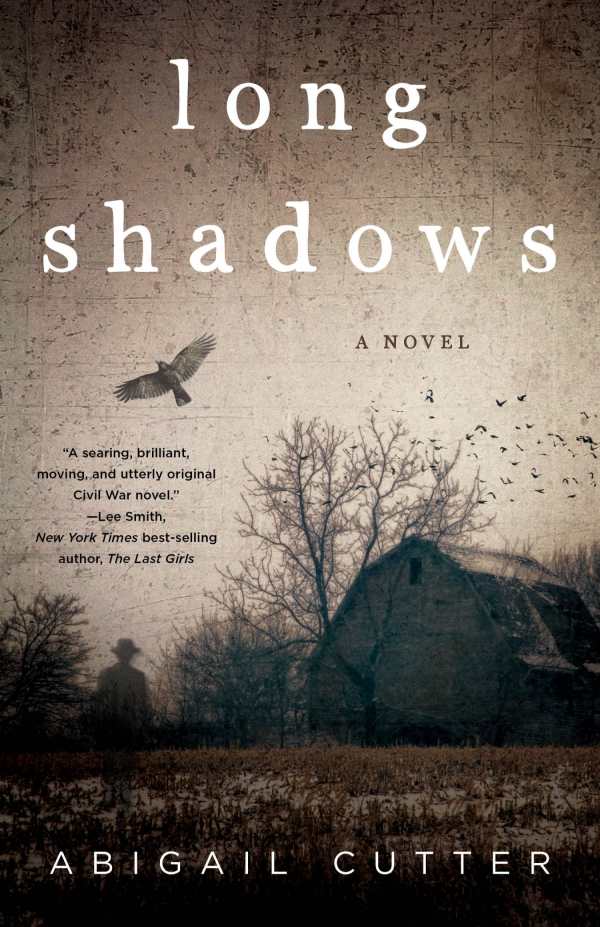Long Shadows
A Civil War soldier endures tough losses and faces a long moral reckoning as a ghost in the historical novel Long Shadows.
A Confederate ghost confronts his Civil War memories when a couple moves into his childhood home in Abigail Cutter’s introspective historical novel Long Shadows.
When he was young, Tom—though he had little conviction about Virginia’s secession or opinions about slavery—enlisted in the volunteer militia. It was an impulsive decision that followed from being caught up in an enthusiastic crowd. The choice forever altered his life.
From his militia’s naïve, frightened time in Harper’s Ferry, where they hoped to overtake an arsenal, to the Battle of Manassas, Tom’s early wartime experiences foreshadow his numbing toward “the cruelest particulars of the circus of war.” Passing realizations that Union soldiers are just like him pair with his connection to fellow soldiers, including his friends. As the war drags on, their boyishness fades; they come to view their roles as senseless. Captured by Union soldiers, Tom’s lengthy imprisonment fuels further psychological damage. Later, his tormented memories of his wartime deeds cloud his marriage, too.
In the present, Tom is shaken when an unknown man and woman begin to clean out the farmhouse that he’s been haunting. Objects that were once significant to him trigger his recollections. There are lavish details about the worn interior of his home too. The removal of its heavy furnishings ties in to family scenes set in the past, while letters that were penned by Tom’s younger sister, Mary, prompt episodic, salient accounts of his service that are juxtaposed to her reflections regarding the toll of that the war takes at home. A sharp exploration about how the infantryman grew disillusioned folds into a potent message about coping with pain to make room for healing.
The couple renovating Tom’s home are a background presence in his story, particularly in the book’s first half. Few connections are drawn between their activities and Tom’s reflections. Tom’s evocative voice dominates; his observations are steady, wrenching, and marked by candor. Visceral battlefield details contrast with his questions about Christian faith and the cruelty of slavery. He is an incisive narrator, though one who insists that many Southerners have no direct link to slavery; he feels that the South suffers because of wealthy people’s drive to uphold the practice.
In the book’s second half, there’s a marked shift toward the supernatural. The woman who’s renovating Tom’s house becomes aware of his presence and is determined to help him. This development is abrupt, and her efforts are set aside for lengthy intervals before they result in a real resolution for Tom.
In the moving historical novel Long Shadows, a ghost reckons with his guilt about surviving the Civil War.
Reviewed by
Karen Rigby
Disclosure: This article is not an endorsement, but a review. The publisher of this book provided free copies of the book and paid a small fee to have their book reviewed by a professional reviewer. Foreword Reviews and Clarion Reviews make no guarantee that the publisher will receive a positive review. Foreword Magazine, Inc. is disclosing this in accordance with the Federal Trade Commission’s 16 CFR, Part 255.

